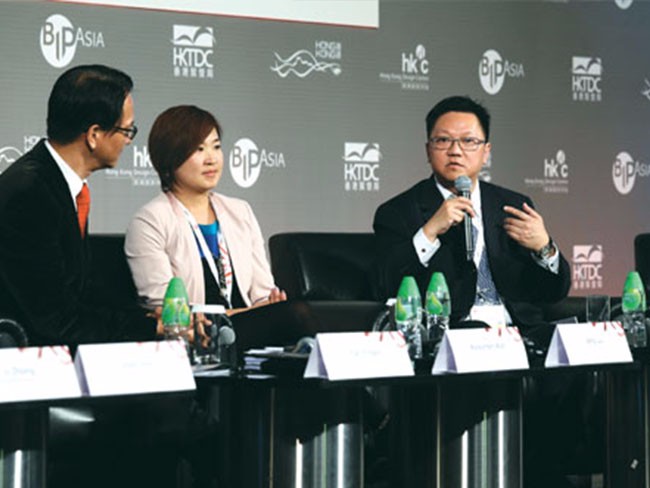2014-12-04

Authorized providers of cultural products in Hong Kong face intellectual property challenges both in the city and on the mainland, as rampant piracy in recent years has left publishers and providers with no choice but to transform, said Chen Man-lung, executive director of Culturecom Holdings Ltd. As one of the largest comic book publishers and media content providers in Asia, as well as the first to introduce Hong Kong comics into the mainland market, the Hong Kong-based company with more than 40 years of experience in the field is now considering making money from the web, instead of print. “With technological innovation gaining speed, we’ve seen an astonishing change in the market culture,” said Chen. “The pervasion of copycats from the mainland makes it almost impossible for local comic book publishers to profit in Hong Kong, not to mention the layers of difficulties in law enforcement at the customs side.” In the 1990s, Culturecom comic books created by local cartoonists enjoyed a weekly sales volume of 200,000 to 300,000 copies. But now it can only look forward to more than 30,000 at best. Japanese manga have suffered the biggest slump, with sales dropping by 70 to 90 percent in the past three years. Copycats ruining scene “Japanese comics are traditionally serialized in some local magazines, and later presented together in book form after being serialized for several weeks. While they are being serialized, mainland copycats can release pirated copies in the afternoon of exclusive comics published by the Japanese magazines that morning.” “But for us authorized licensees, we usually have to wait for at least three to four months before we can get the copyright of the book editions and then publish the comics as soon as we can. The time lag is frustrating,” said Chen. Chen said the Hong Kong Comics and Animation Federation (HKCAF), the industry organization of which Culturecom is a member, files complaints every year with the city’s customs department, providing lists of mainland pirate website addresses in the hope that at least some of the listed websites could be dealt with in accordance with the law. In October last year, a network company based in Zhejiang province and owner of a comic website called “Comic House”, was fined 100,000 yuan ($16,246) for copyright infringement. Seventy of its comic works published online were in fact copyrighted by the HKCAF. The case was later listed by the National Copyright Administration as one of the top 10 cases of copyright infringement that prove the resolution of the authorities in cracking down on piracy. But Chen considers it just a flash in the pan. “Then what? After paying the 100,000 yuan, you can still build another website. Not to mention this is only one of the few cases that have been handled over so many years.” Technological advances fast revolutionizing the market are also giving local comic book publishers a hard time. With just a click on the tablet or mouse, readers can easily enjoy their favorite comics without having to pay as they would otherwise have to for a printed book. This is why Culturecom decided to march into the mainland market by joining hands with local telecommunication giants. Earlier this month, the company announced its cooperation with China Mobile on running a mobile game and app copyright authorization business together on the mainland. “Copying a comic book is too easy. However, copying a service could be hard. That is why we are targeting the online game market,” said Chen. “As long as we have a sophisticated and large-scale partner, we feel safer.” Culture in class of own In the city, the latest Copyright (Amendment) Bill 2014 is still under discussion in the Legislative Council. While the bill has sparked heated controversy on the Internet, mainly over derivative work issues, Chen said the government faces its own struggles in looking for a main focus to support the IP industry, especially the cultural sector. “The cultural creativity industry is never like a traditional production plant. It does not have a regular formula.” The penetration of Internet and technology into people’s daily lives has made the situation even more bewildering. “There needs to be the transformation of products. There needs to be transformation of the channel. Things are not the way they were,”said Chen. agnes@chinadailyhk.com http://www.chinadailyasia.com/2014-12/08/content_15200374.html